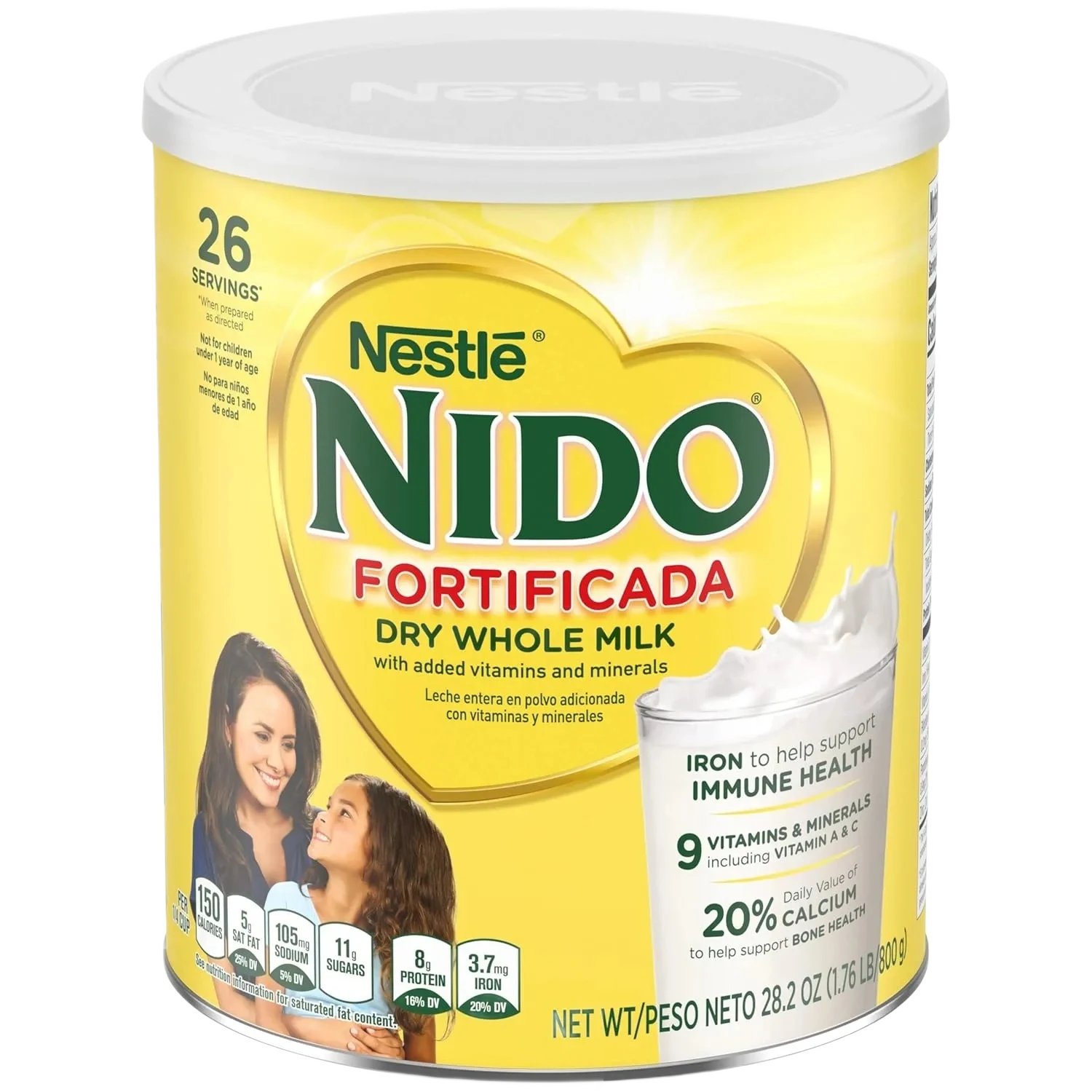Nestlé NIDO FORTIFICADA DRY WHOLE MILK
food & drinks • For 1-2 year old toddlers • Consumable 🍝
Product Images
Product Photo

Tap to enlarge
Ingredient List

Tap to enlarge
Is this toddler-safe to eat Nestlé NIDO FORTIFICADA DRY WHOLE MILK?
Check for Different Age (6 available)
Ingredients Analysis (7 found)




Common Questions About Nestlé NIDO FORTIFICADA DRY WHOLE MILK
Toddler-friendly? Nestlé NIDO FORTIFICADA DRY WHOLE MILK
Yes, Nestlé NIDO FORTIFICADA DRY WHOLE MILK is generally considered safe for 1-2 year old toddlers based on ingredient analysis.
What ingredients should I watch out for?
We analyzed 7 ingredients in Nestlé NIDO FORTIFICADA DRY WHOLE MILK. 7 safe. Check the detailed analysis above for specific concerns.
When can toddlers eating food & drinks?
The appropriate age depends on the specific ingredients. This analysis is for 1-2 year old toddlers. Use the age selector above to check other ages.
⚠️ Important Disclaimers
Product Recognition: Product names are identified programatically and may be incorrect. Always verify product identity yourself.
Safety Analysis: Evaluations are for research only - consult pediatricians for medical decisions. Do not rely solely on this analysis.
No Guarantees: Results may be incomplete or inaccurate. Do not rely solely on this analysis.